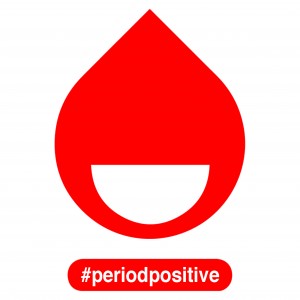“Being period positive means you understand how the menstrual cycle works, and if you have one, you can chart your own cycle. You aren’t afraid to ask questions about menstruation. It’s not being afraid to leak and not picking on people if they happen to leak during their periods.”
SMCR member and Period Positive founder Chella Quint was interviewed recently for a radio documentary about period taboos for BBC Radio. Chella says she was the first one interviewed. In an email Chella wrote that “the producer said she wanted my help to shape the conversation! The only down side is I didn’t get to ‘reply’ to anyone else, and I’d love to have had a proper chat with the P&G rep.”
Here’s what Jane Reck, the show’s producer, said about Chella’s contribution:
I interviewed Chella for the BBC Radio 4 documentary A Bleeding Shame which examined attitudes to menstruation and why it’s important for all of us to be ble to have a normal conversation about periods. Chella’s contribution to the programme provided invaluable educational, social and historical context. She has a way of being able to get across really important messages in a thought-provoking style combined with her straight-talking humour. Public engagement at its finest!
Listen to A Bleeding Shame which originally aired on BBC Radio on June 24, 2016. The program begins at the 3:25 minute mark of the recording. This introduction appears on the BBC 4 Radio website:
Half of us have them, human existence depends on them, but we don’t like to talk about them! From the ‘The curse’ to visits of Aunt Flo, euphemisms for periods reflect a range of attitudes from embarrassment to fear. Jane Garvey discovers how the stigma surrounding menstruation is being challenged in science, sport, education and comedy. Former tennis player Annabel Croft, comedian Jenny Éclair, sports physiologist Richard Burden, Roisin Donnelly from Procter and Gamble, Period Positive campaigner Chella Quint and a group of teenagers, all provide their thoughts on the importance of being able to talk about menstruation.


